Interview: Shana Carroll Gives Some Insight Into 7 Fingers' DUEL REALITY
The 7 Fingers, also known as Les 7 doigts de la main, are making their Center Theatre Group debut at the Ahmanson September 11th
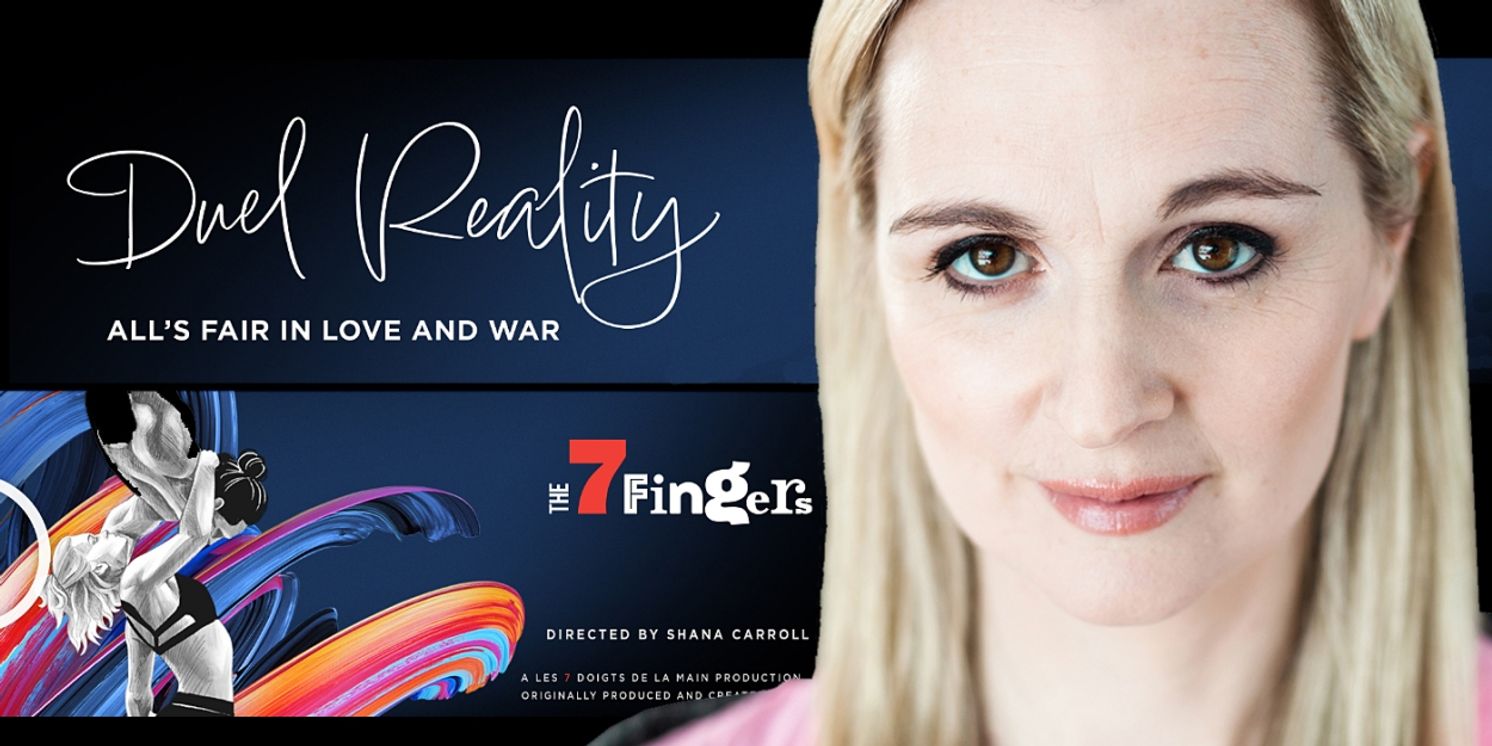
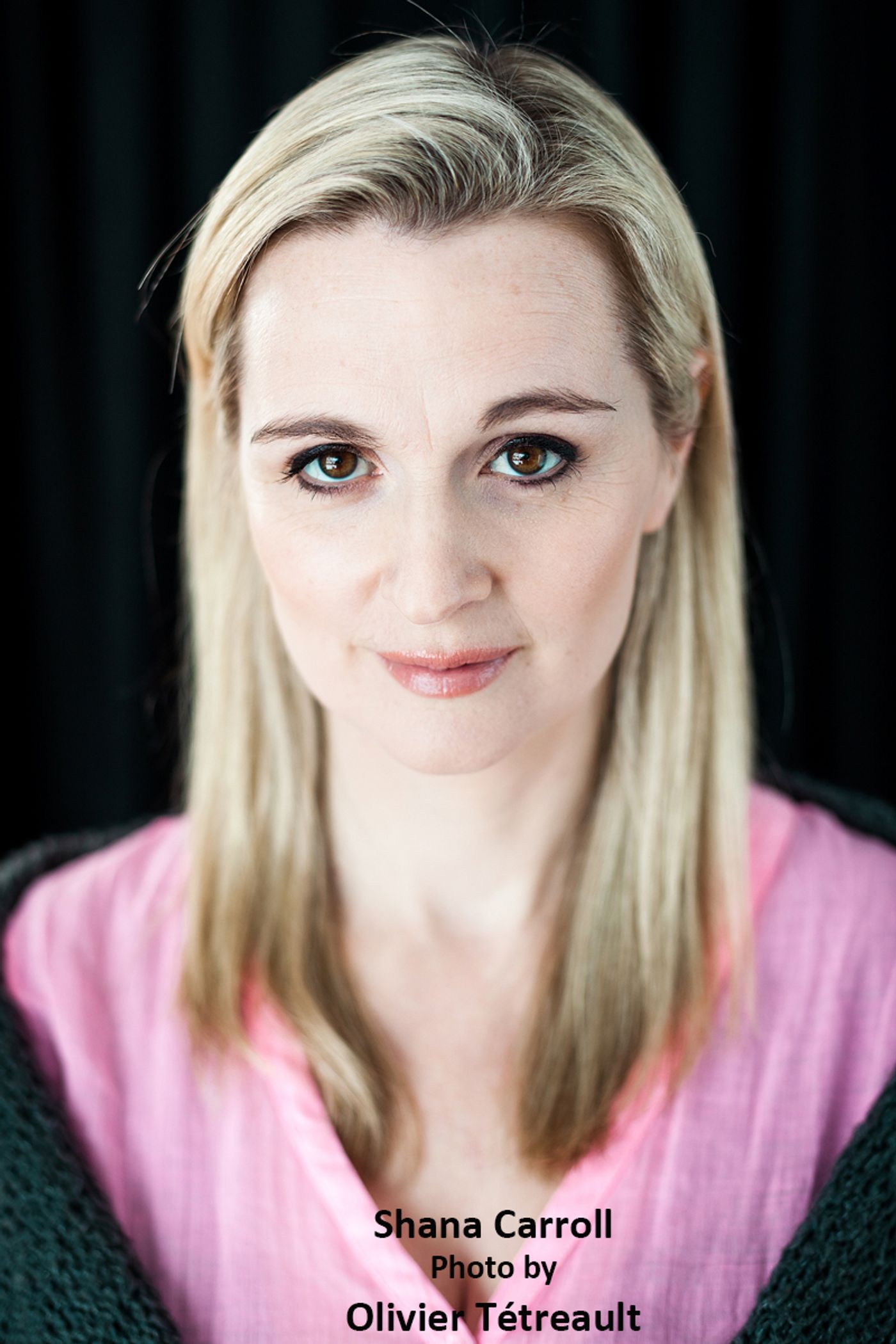
The 7 Fingers, also known as Les 7 doigts de la main, are making their Center Theatre Group debut at the Ahmanson September 11, 2024. This artist collective based in Montreal, Quebec, Canada was founded in 2002 by seven circus artists: Isabelle Chassé, Shana Carroll, Patrick Léonard, Faon Shane, Gypsy Snider, Sébastien Soldevila, and Samuel Tétreault. Shana found time to describe 7 Fingers’ signature electrifying mix of circus, theatre, illusion, music, and dance inspired by the star-crossed tale of Romeo and Juliet.
Thank you for taking the time for this interview, Shana!
What was the inspiration for Duel Reality?
There’s often this impression that ideas kind of come to us linearly - I first thought this, which then made me think of that etc. - but so often - at least for me - it’s like there are parallel tracks of thought and idea-dreaming that at some point converge.
On the one hand we’d been ruminating for awhile over various Shakespeare adaptations we could do at The Fingers (using, of course, our circus/dance language). Romeo and Juliet always the top contender, lending itself so well to our high-stakes acrobatic vocabulary, with its high-stakes passion and violence; primitive human urges told through visceral, essentialized, physical language.
In the meantime, I had created a show in 2007 for a tennis tournament, staged as a series of ‘team red vs team blue’ acro battles on an actual tennis court. When the show-prospect that is now Duel Reality first came to us, the proposition was to do it with audiences on both sides, facing each other, similar to a tennis court really. So thoughts of that show from 17 years ago flooded in, front of mind.
And then, yes… the subject of red vs blue paralyzing, tragedy-making polarity. That was also front of mind, to say the least.
So really the ideas converged pretty quickly… the tennis court feel, red vs blue, ooh, maybe that’s our Romeo and Juliet…? It kind of wrote itself from there.
(Note: now that we are touring conventional proscenium theatres we are no longer in the bi-frontal lay out, but try to recreate it by putting some audience on the stage)
What is your three-line pitch for Duel Reality?
Romeo and Juliet as a sporting event. Told through our unique blend of circus/dance/theatre. Your hearts will race at the same rhythm as our star-crossed lovers’. Love and war. Battle sharpens passion.
How many performers are in Duel Reality?
There are 11 on stage, but one is basically an “on-stage swing”; the show is actually built for 10.
I love the use of ‘Duel’ instead of ‘Dual.’ Whose idea was that?
Well, it was mine, but it was kind of the other way around… That is, the “duel” notion came first. I knew the structure of the show would more or less be a series of duels, whether the “dance battle” kind, the one-upping-with-performances-at-a-masked-ball kind (as you do), the passionate romantic push and pull kind! or the more literal I-want-to-murder-you kind. So the “duel reality” wordplay kinda rolled off the tongue from there.
Do you have a shorthand in communicating your direction to the more seasoned members of your ensemble?
Oh, my goodness yes! What’s funny with acrobatic language is very little has been officially coined and documented. Especially since you are often making up brand new moves, so by definition there is no name for them! Unlike dance where you can say “ok relevé here, then pas de bourree, châiné,” for centuries in circus it was like secret family recipes. It tends to be very regional, but so narrowly regional that even per school, per company, the language can change (often chock-full of coded in-jokes and anecdotes). There are certain moves that we’ve been doing at 7 Fingers for years, that were invented along the way for one show or another, and those who have been with us know what we’re referring to instantly. A funny example: there is a huge banquine toss from our show Traces that we reuse a lot. The name of the act it was in was called “Car Crash”, as the imagery we based it on was a lot of collision and urgency and careening bodies etc. Anyway, here we are nearly 20 years later and we still call that particular jump “Car Crash;” not everyone even knows why but they know what we mean.
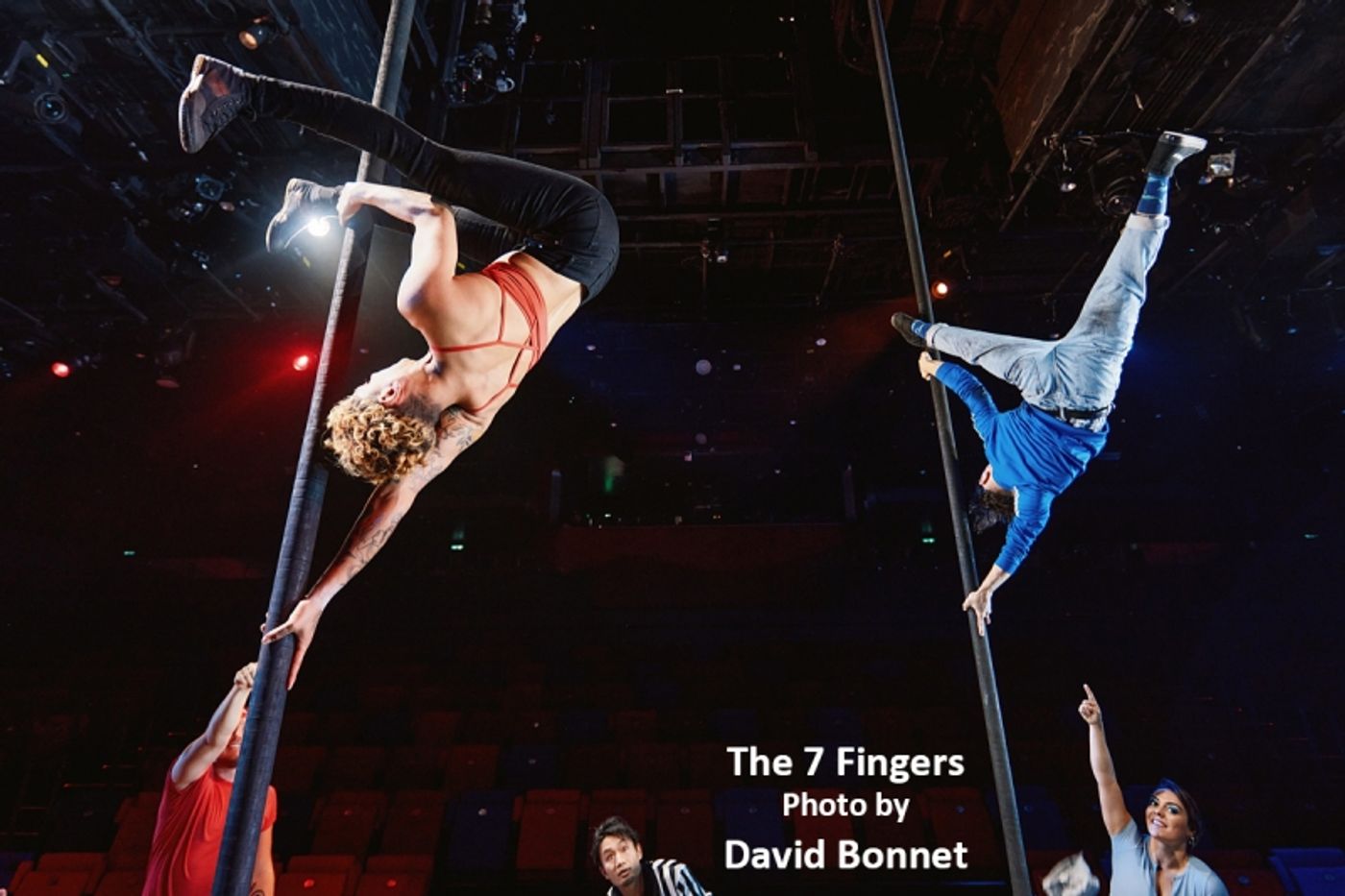 And of course, artistically, too. Artists who know me/have worked with me… I’ll reference a vibe from another piece we did together, and not even two words into it they see what we’re going for. In fact, we often forget until we have someone new, who freezes up and is like “I have no idea what y’all are talking about.” I’ve even had the experience where my own artists have gotten me back on track when I’m down a rabbit hole, reminding me of things I’ve said and/or believed in the past, quoting me back to me! It’s really the most wonderful synergy, one of the greatest joys of my life.
And of course, artistically, too. Artists who know me/have worked with me… I’ll reference a vibe from another piece we did together, and not even two words into it they see what we’re going for. In fact, we often forget until we have someone new, who freezes up and is like “I have no idea what y’all are talking about.” I’ve even had the experience where my own artists have gotten me back on track when I’m down a rabbit hole, reminding me of things I’ve said and/or believed in the past, quoting me back to me! It’s really the most wonderful synergy, one of the greatest joys of my life.
How do you juggle your 7 Fingers’ responsibilities with your outside directing projects?
Well, sometimes less successfully than other times, to be honest. It’s also juggling being a parent, a spouse, a child of aging parents — it’s like a constant triage. I won’t lie - for anyone who lives it - that sort of priority triage is one of the more stressful aspects of life. Because there is big picture priority and time sensitive priority, and the time sensitive stuff always seems to win out. Which isn’t always right, cause in general the big picture stuff is less about putting out immediate fires. But the real answer is that my 7 Fingers team is just an amazing group of buddies, and we all want each other to a) succeed and b) be happy and healthy and sane, so there is a lot of pinch-hitting and weight-pulling when one of us is underwater.
In fact, whenever taking an “extracurricural” project, the first question we ask is how much time it will take us away from the Fingers proper, and if that’s a worthwhile exchange. Though it’s often hard to gauge in advance, of course.
How did you come up with the name 7 Fingers? Would it be because there were seven of you who co-founded 7 Fingers in 2002?
Yes, we were 7 founders, and it was our first “summit,” where we spent a weekend holed up in a cabin brainstorming and vision-discussing. But on the final night we decided we couldn’t go to sleep until we found a name. It was 2:00 in the morning, we were not 100% sober, and Isabelle (one of the Fingers) said “les 7 doigts de la main” (French for "the 7 fingers of the hand”), and we all laughed and thought: laughing is good. And mostly: we really want to go to sleep.
But for better context: In French there is an idiom “like the 5 fingers of the hand”, kind of like saying “like 2 peas in a pod”, but it refers more specifically to working well together in dexterous coordination and harmony, but with a slight connotation that each finger is different and has its own identity… so the symbolism for sure worked! As did the quirky slightly-deformed imagery of a 7-Fingered hand. For years we went only by the longer French name, and even my own parents couldn’t pronounce it, so finally have shortened to The 7 Fingers.
What do you remember of the moment you found out you were to be a member of the Ordre des arts des lettres du Québec in 2023?
What was funny was that everyone in the company (7 Fingers) knew, which included my own husband, but no one filled me in! I found out by receiving an actual snail mail letter in my actual home mailbox. And, you know, mail these days… I was worried it was junk, or asking me to donate or something, or worse maybe some outstanding bill, lol. I almost didn’t open it. Also, because it was in French, I wasn’t sure I entirely understood. It was a bit - wait is this what I think it is? If I remember correctly, I was alone in the house, so took a photo of the letter to send it to my husband (who is French) to be sure I wasn’t misinterpreting. When I was finally sure I understood, it was disbelief, and feeling just beyond honoured and touched and humbled and unworthy and all of that stuff that sounds pat and cheesy but so incredibly true.
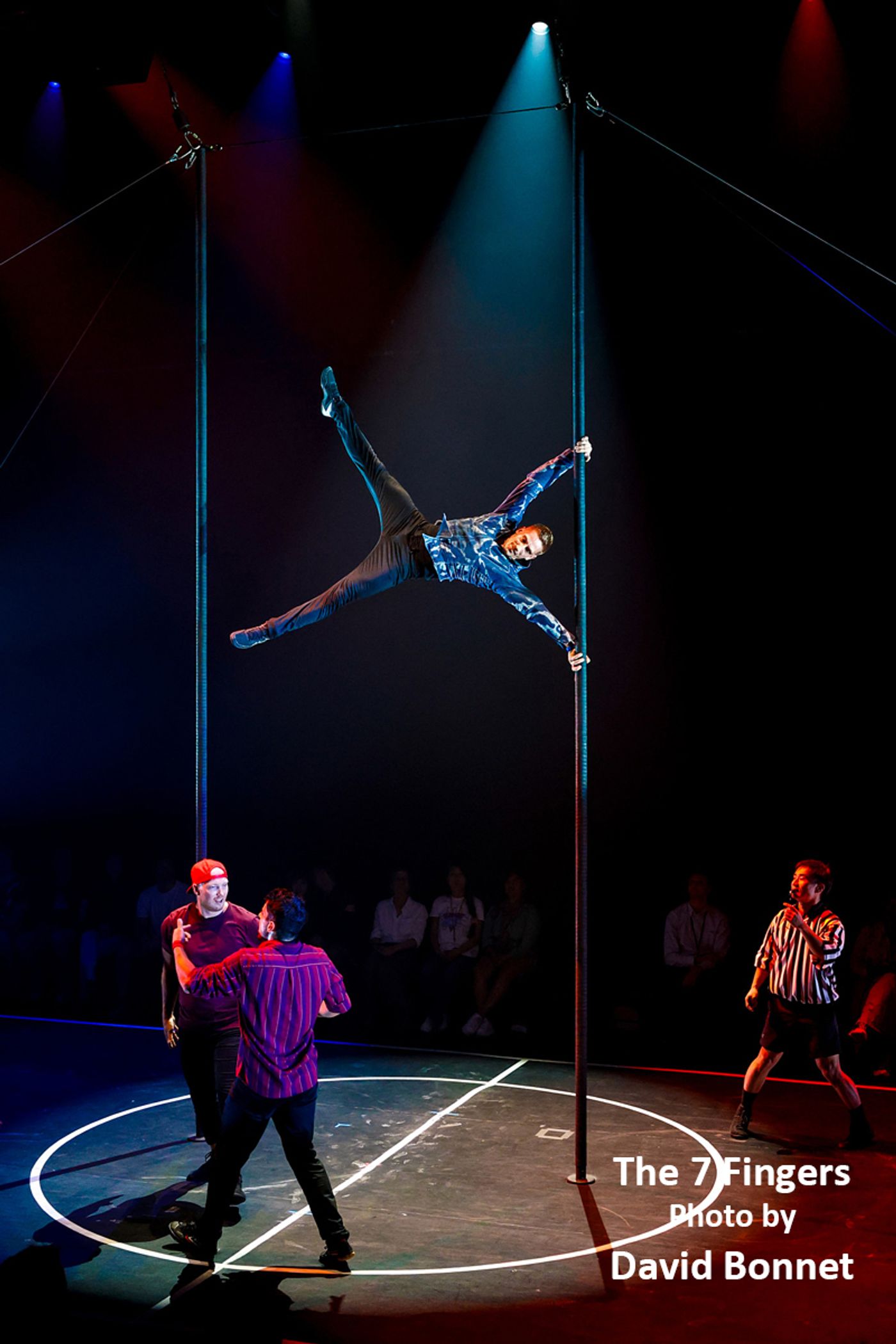 Your father columnist Jon Carroll wrote for the San Francisco Chronicle. No desire to follow in his footsteps?
Your father columnist Jon Carroll wrote for the San Francisco Chronicle. No desire to follow in his footsteps?
Oh, what an interesting question! First of all, thank you for mentioning this, these days fewer and fewer people know of my father’s legacy. And he was such a brilliant writer, and such an influence on me, and still is.
Growing up, every adult I knew was a writer. All 4 of my parents (they both remarried when I was pretty young) were writers/journalists, as were pretty much every one of their friends… So I grew up thinking being a writer was the absolute most boring thing you could do with your life. Like the default adult setting. In elementary school teachers complimented my writing and I thought - ah man, can’t I be good at something more original? It might have played a part in choosing the highly physical not-cerebral-at-all profession of trapeze artist (!) as soon as I hit adulthood :). I remember hearing some quote (so sorry, I don’t remember the source, and I’m sure I’m paraphrasing), about the poet being the least poetic creature, and I thought: I think I’d rather be the poetic creature.
But what I realized with time, the way I create shows or acts or choreographies is so often with a writer’s brain. I mean of course creative work, whatever your tool is, uses many of the same processes, but I have noticed through the years, if I compare with others in my field: that writer brain kinda guides me. Can’t say if that’s genetics or upbringing. The latter surely shaped me… when your dad writes a column five days a week, your life is about mining column ideas, seeing the anecdote and extracted wisdom/humor in your daily life. The phrase “that could be a column” was one of the most uttered in our household. Our car would break down on the highway and we’d barely flinch, cause we were all collectively thinking “ooh, this could be a column.” Hard to reverse-engineer that.
It also might be hard for some to fathom now, pre-internet and blogs and social media etc., where essentially everyone has a column if they want! But to be the appointed voice of the city, and to have to deliver on deadline daily, it was a pretty intense pressure and visibility… his words held so much weight. I don’t think I envied that. Since the column only took him a couple hours to write every morning, it seemed like a deceptively chill job! He was done by 11am! But then you realized the rest of his waking hours he was “farming” ideas and constantly writing in his head. Didn’t really envy that either, though I think I’ve more or less ended up there myself, in a different way.
What was the impetus for you to begin your career as a trapeze artist with San Francisco’ Pickle Family Circus?
Well, talking about my father and his column-ing is actually a good segue. I did theatre growing up, kind of as intensely and seriously as you can while still in high school etc., and already at 17 was exploring professional paths. Meanwhile my father had become enamoured with the local one-ring, “European style” circus, the Pickle Family Circus. He did a few columns on them, hit it off, got sucked in, was on their board of directors, created annual city-wide treasure hunts as a fundraising event for them (that part was super cool). I was a “serious” theatre student and not a fan of circus, and he was often carting me along to their events. At the time I think I kinda shrugged.
But while pursuing acting I needed a day job and he suggested I work at the office at Pickles, just to learn more about non-profit organizations, arts administration, might be useful skills moving forward, he said, instead of being a barista. So I got a job doing group sales. Back then the offices and studios were all in the same cozy little space, an old church on Potrero Hill. I would come into work and walk by the performers (who, by the way, were my age, unlike my fellow office workers), warming up and training. Specifically - the life-changing flash I’ve now recounted hundreds of times - I watched the trapeze artist training. She was in baggy sweat pants, messy hair, so close to me I could see the sweat and effort, hear her skin against the ropes and bar… It rebooted what circus was in my mind. I often say one reason I didn't like circus as a kid is that it was unrelatable, these were other-worldly creatures that I could be in awe of but not moved by, because it was so foreign and unreachable. And/or a ‘trick’ of some kind…? I mean they can’t be really hanging by one foot?! C’mon. But close up and through that baggy sweat pants lens I saw someone I felt I knew, and therefore the human inside the superhuman, the ordinary inside the extraordinary; I cared for her and so therefore cared about her when she was hanging by one foot, feared for her but was in awe of her bravery and also she moved gravity-less or underwater or both and it was not only the most beautiful dance I’d ever seen but seemed like everything I wanted out of life at that moment, in a snapshot on a steel bar, a freedom both metaphorically and physiologically — These are all things I now say regularly, so key to the foundation of The Fingers, ‘the human in the superhuman the ordinary in the extraordinary’ blah blah blah - so much so to the point it now sounds like “message” or cliché to me - but it was 100% what made me fall in love with circus in 1988, and turn my life on its axis. I think that’s what I always try to recreate in my shows in one way or another, my moment in that Potrero Hill church, my trapeze origin story.
So yes… from there, in that fraction of a second, I decided to become a trapeze artist. I was not athletic. Could not touch my toes or do a pull up. But one thing I loved about circus is, you just train and train and train… pure will, passion and grit goes a very long way.
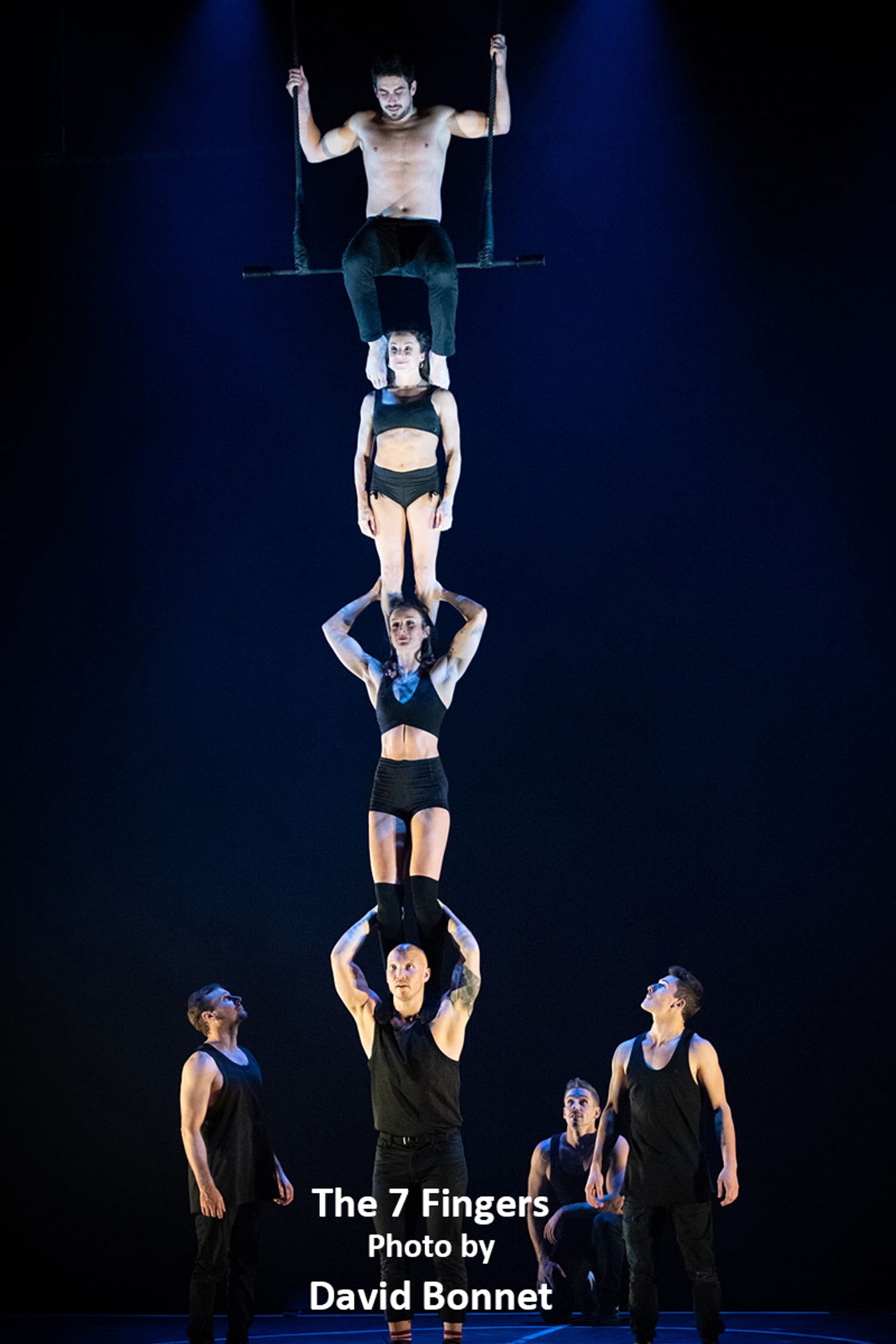 What did you want to be when you grew up? Trapeze artist? Choreographer? Director? Professor? Writer? All of which you have been.
What did you want to be when you grew up? Trapeze artist? Choreographer? Director? Professor? Writer? All of which you have been.
Probably first was an actress. But I think when you fall in love with performing arts as a child that’s kind of the only option you know. Rarely a four-year-old sees a play and walks away saying “I want to be a dramaturg when I grow up!”. So yes - I was a four-year-old who saw a local production of Guys and Dolls, and that was all I could think about. Then in high school, I started directing plays during senior year, it was just an extension of the drama program, a couple seniors who qualified directed one-act plays, and I definitely felt like I was in my element. So for a few years before migrating to circus, I wanted to be a director. At the time, becoming a trapeze artist felt like I was abandoning everything else, but of course life has a way of looping back on itself, and I feel like where I’ve landed now is really a combination of all of that.
(Oh, and for a short moment I wanted to be a broadcast journalist, because I was obsessed with the movie Broadcast News. That one has yet to come to fruition but I suppose there’s still time :))
What do you remember of your audition to be a solo trapeze artist for Cirque du Soleil’s Saltimbanco?
Well, I never auditioned. There wasn’t really much auditioning in those days… Cirque was still old school. The scene there was very close knit — I was a student at the Circus School in Montreal (l’Ecole Nationale de Cirque), and back then Cirque didn’t have their own studios, so their shows trained at the school. So everyone hung out together, and the powers-that-be low-key watched the students in the school and eyed the ones they thought had potential.
Even prior to my attending circus school, the casting director had seen me at The Pickle Family Circus. We kept in touch. It was all one community and very friendly. So funny to think about now.
What are you most proud of the foundation Les 7 Doigts created in 2016?
I think it was miraculously very timely. Because we established the foundation, we had a fundraising vehicle for community causes, and it is what permitted us to receive funding to keep Our Studios open during the pandemic, for community use, so circus artists could continue training at no cost. It was such a life saver during that time. The world was in lockdown, but because Our Studios are big enough to create distanced training areas and follow all security protocol etc., there was so much life and creation and activity inside our walls, when it felt like an energetic drought everywhere else. That was monumental.
What’s next for Shana Carroll?
Oh gosh. I wish I had that answer. Lots of parallel thoughts/ideas/plans. Maybe some will magically converge :)
Thank you again, Shana! I look forward to witnessing your Duel Realities.
For tickets to Duel Realities through September 22, 2024; click on the button below:
Videos

